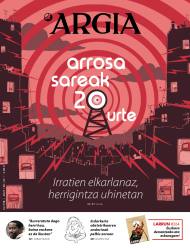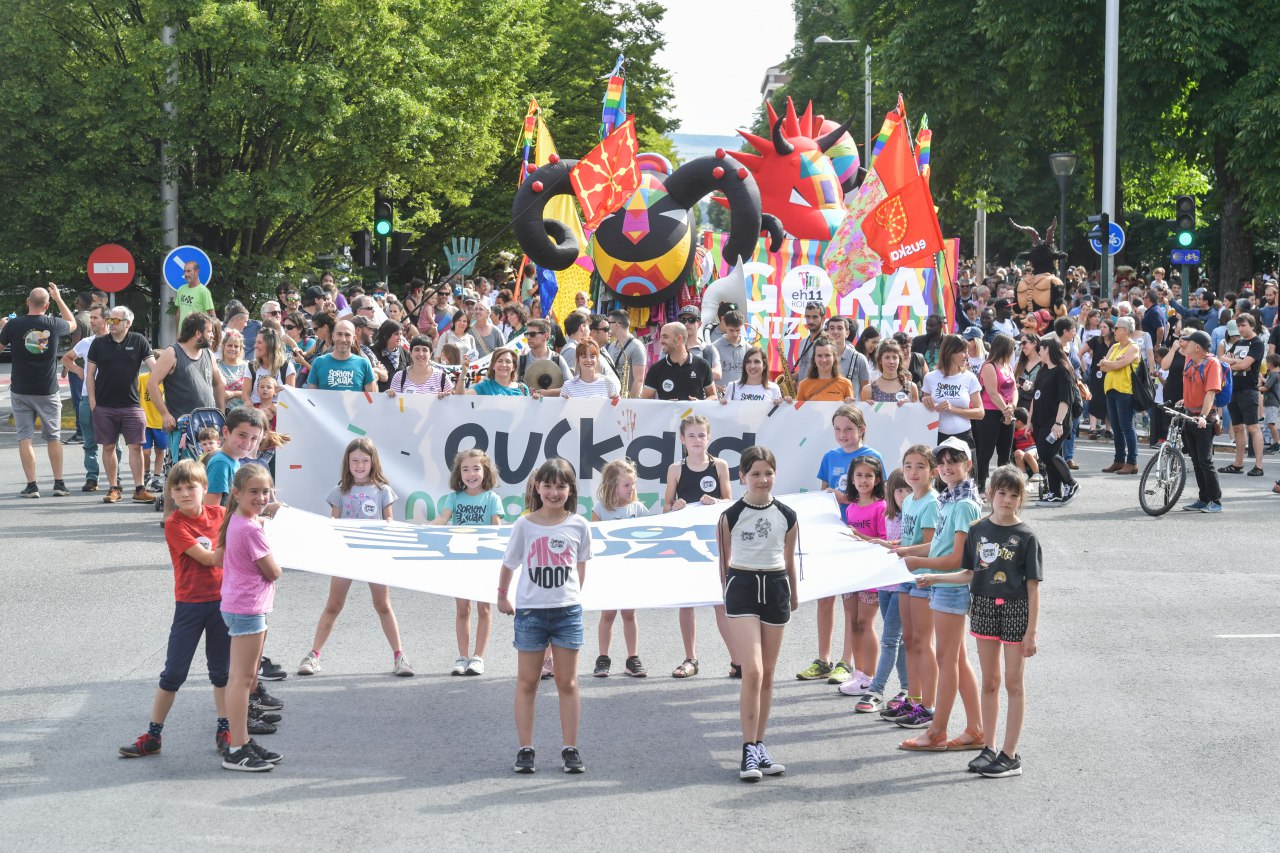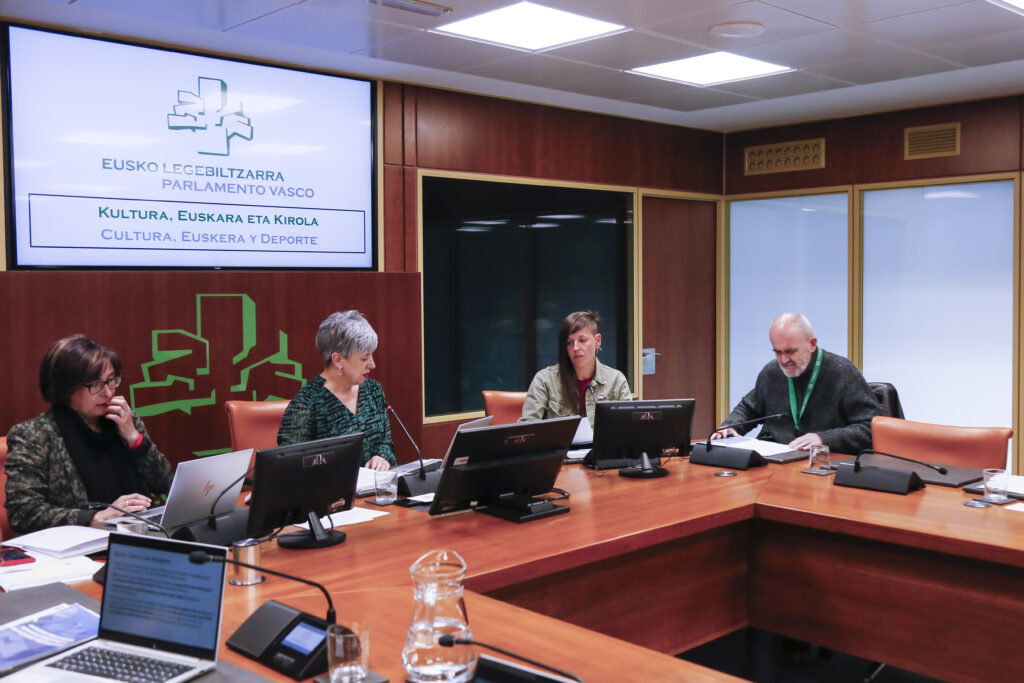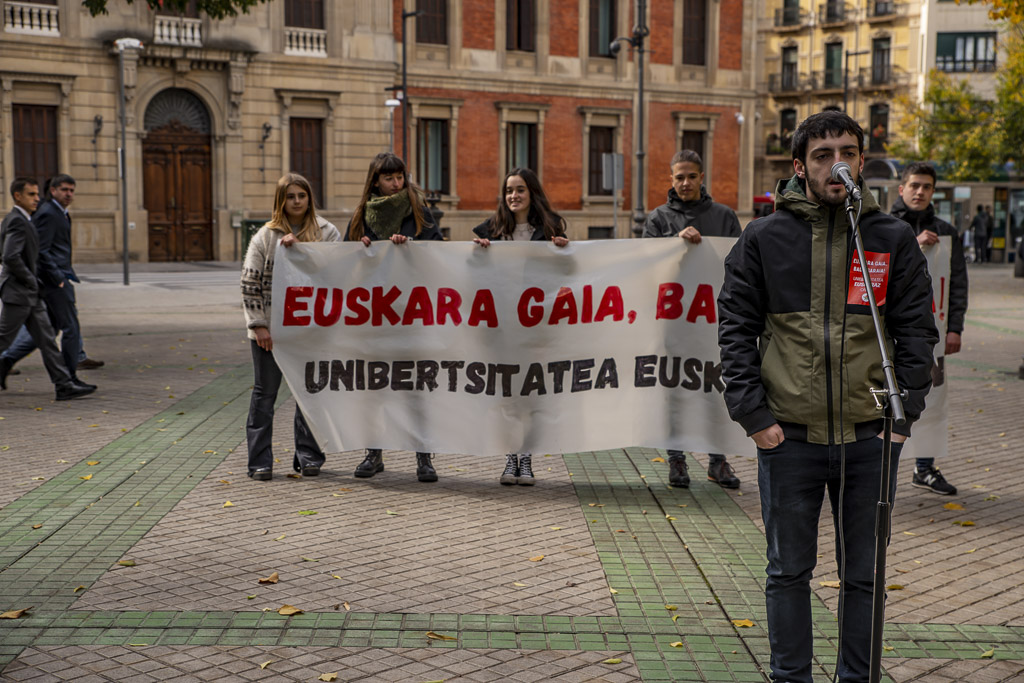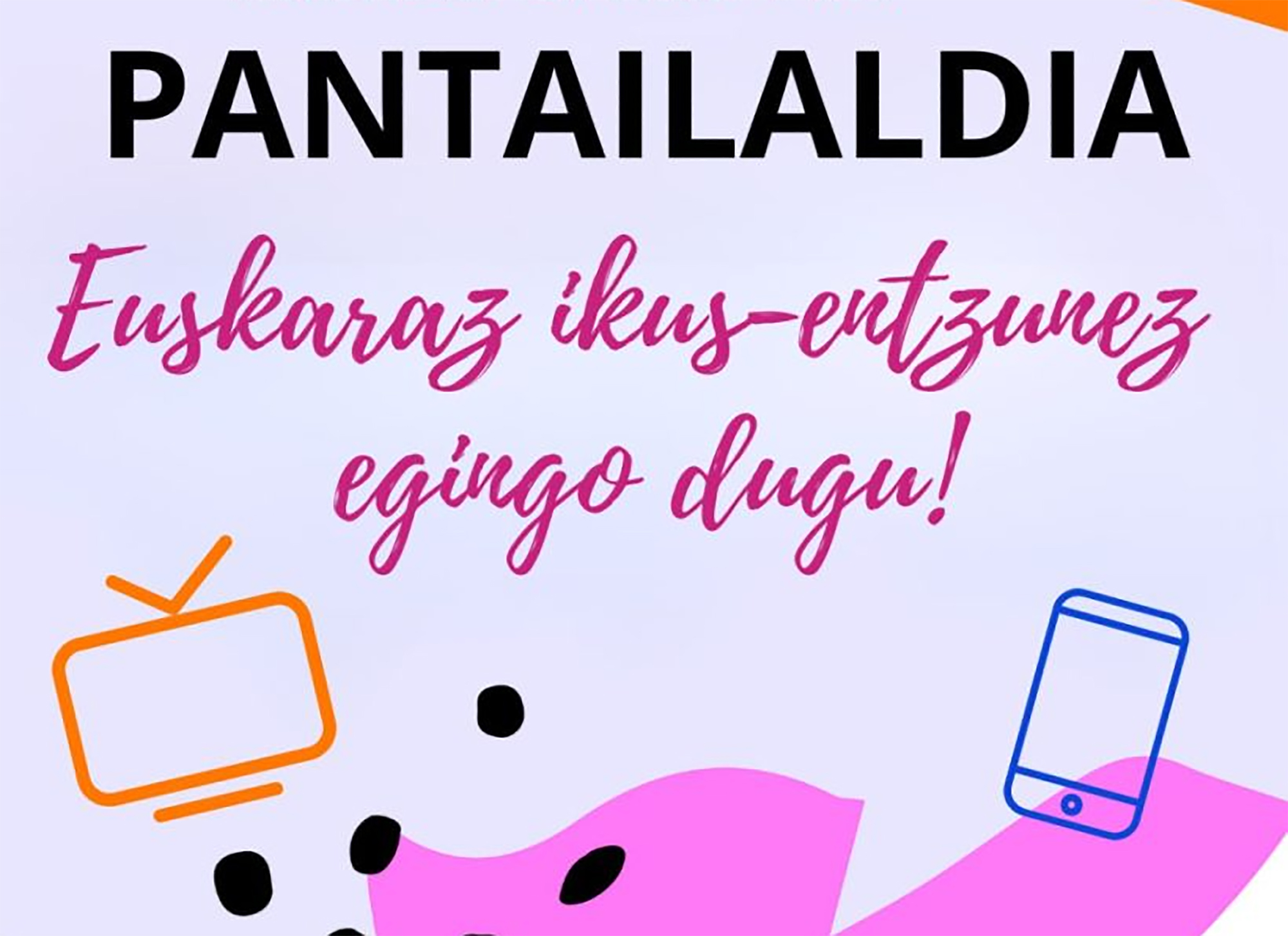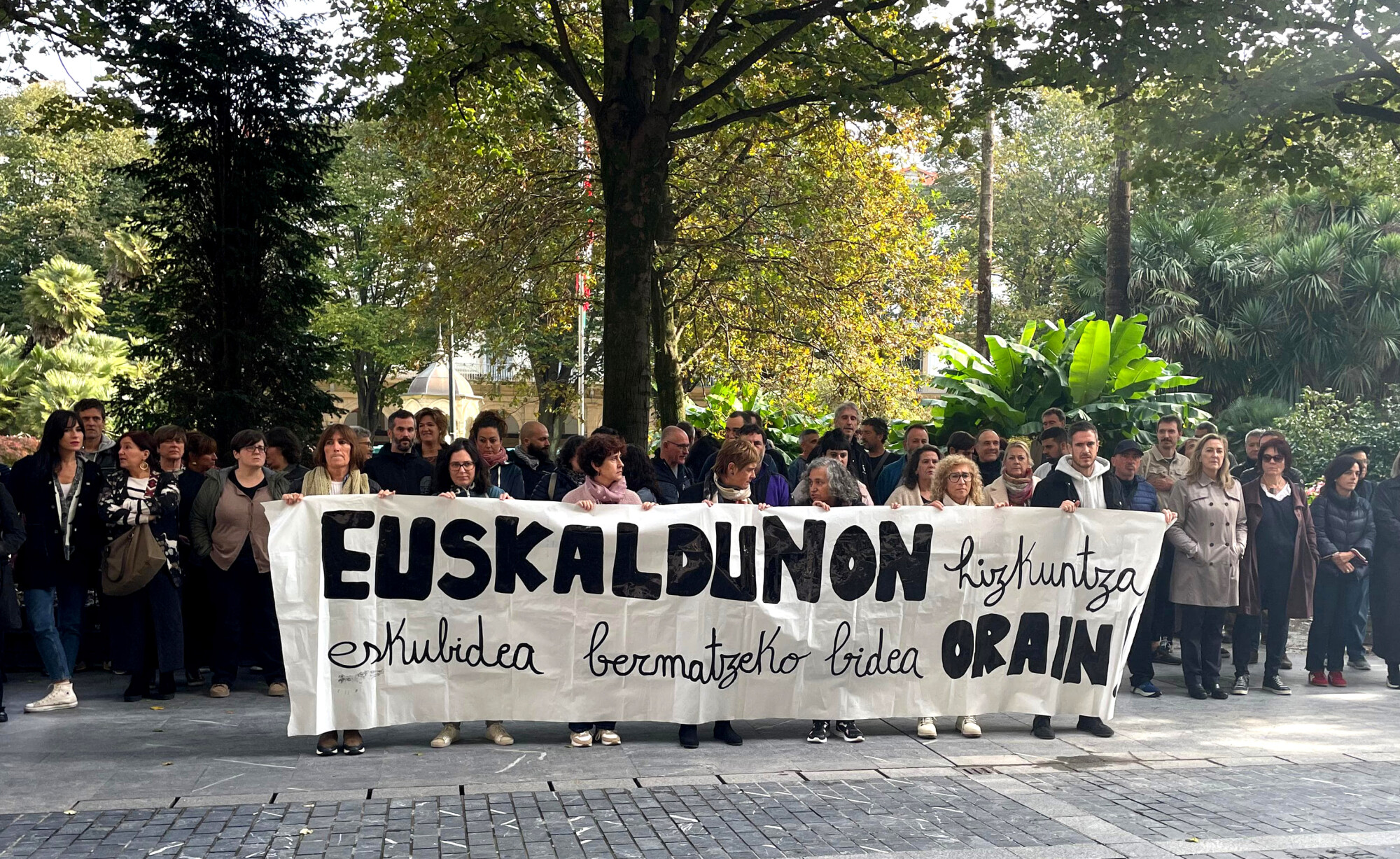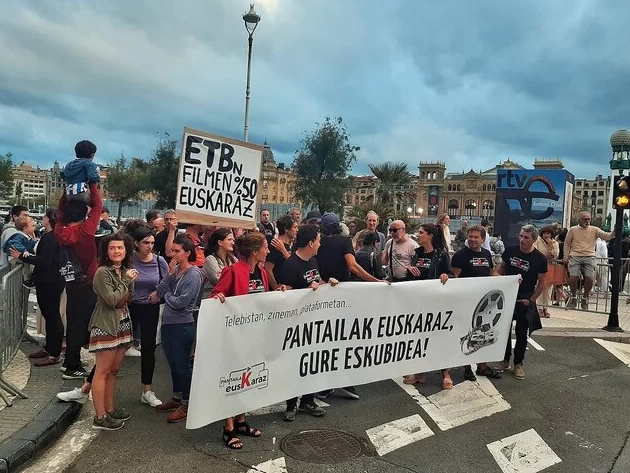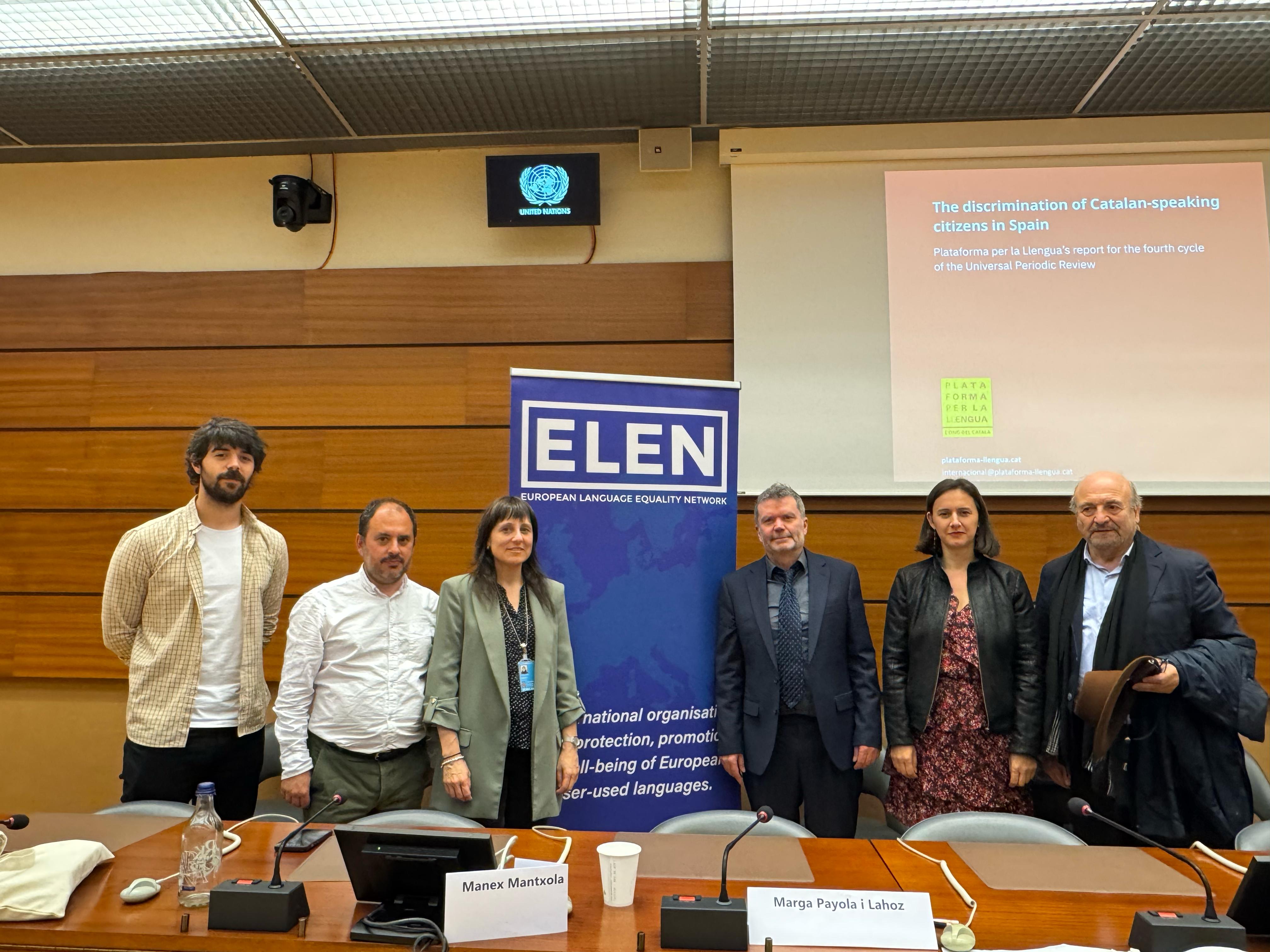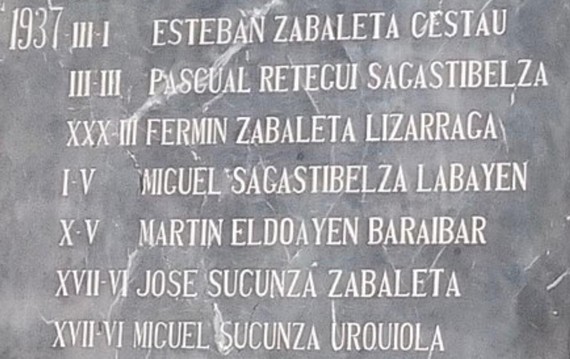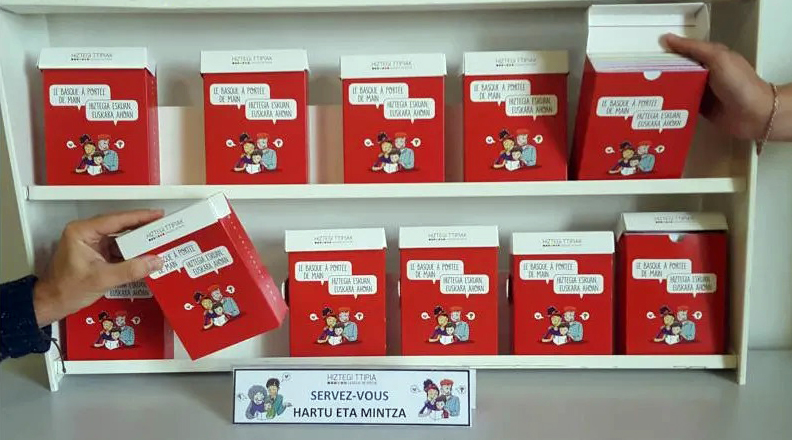"It's OK to know languages, but it speaks -- in Basque, right?"
- He came to Vitoria to talk about his country's language, but he joined the word and we realized it was just the tip of the iceberg. Born in Guinea Bissaun, seed of Senegal, married to Euskal Herria. A part of life, in the most original melody in Basque.

Irakasleak zituen gurasoak. Hamalau urte zituela galdu zituen, lau hilabeteko aldian biak hilak. Ingeniaritza Teknikoa ikasketak egin zituen, Eraikuntza zibiletan espezializatu, Senegalera egin, Irurako alabaz maitemindu, Euskal Herrira etorri 2010ean, zahar-etxeko langile, osasun garraioan ikasi eta trebatua, sorterritik urrun ari da bizia egiten, bere burua euskaldundua, jatorrian mankanyera hiztuna izanagatik ere. Besteak beste. Babel dorre txiki bat da haren etxea, euskara, gaztelania, kreolera, mankanyera eta gainerako hizkuntzen saltsa lodian.
A few months ago you were on the Hitz Adina Mintzo cycle in Vitoria-Gasteiz, speaking of the Mancanc language of your country.
I first introduced myself. Then I started talking a little bit about language. And after you start, it goes on. When I was ordered the conference, I thought I would write, but then I decided otherwise. “Even though I write, I’m not going to say it as I wrote it! So what do I have to write for? According to the questions, I will answer.” I have no rage at reading things, before I read what some people have said about mancanera and then I talked about my life experience, easy, understandable. I compared it a little with the situation in the Basque Country, explained the numbers of speakers… I also said a little bit about their ethnicities… I said those things and answered the questions.
You were nervous before you started the
session… Yeah, before so many people! On the one hand, I didn't know how many people there were going to be, and on the other, I didn't know what kind of questions they were going to ask. Nervous. I internalized the process, I had to make a conference, but until I got home I didn't calm down! Ha, ha… My wife gave me encouragement. “You go for these things!” he told me. But not always, not always worth it!
What was the road to Euskal Herria?
Until I was fourteen, I lived with my parents, as a family. Then both died, father and mother, in a period of four months. Since then, everyone made their own way at home. I was fine in school, also in high school, I passed the university entrance test… But I had no money to pay tuition, because there was only one private university there. So I studied profession in the specialty of Technical Engineering, Civil Constructions. Then we got together fourteen colleagues and we started in Eraikal. Some were electricians, some were masons, carpenters… Then, with two others, I went to Senegal, to Abene, to work, to make houses. Then I rented the bar. I would put music to set ambition, to create movement, to attract people. It's a lot of tourists going! I also took three small houses to rent tourists and, once, they welcomed one of them, Josetxo. There were fifteen days, by my side, but I worked so hard, I didn't even have time to look at them!
"I went to do the Euskera test and I was the only one africano.La I tried it one month after I started working in the nursing home. The examiner came, I did the test, I passed it and pulled out the B2."
And how did they relate?
I don't know! We started to relate through a Catalan who lived there. Now it is the month that Catalan… He told them that he was talking about my master and me: “This knows a little Spanish. Guinea comes from Bissau and knows Spanish as Portuguese.” “Great, even if it’s just to talk to someone!” they said for me. And so we started to relate. One day, two days, three days… They wanted to visit different places and another friend and I organized a tour to show them their corners. So, until we fell in love. So we changed the program! Ha, ha, ha… We started making a plan for me to come here. First we wanted to go through the invitation, but it was not easy, they ask for all the documentation we want! In the end, we decided to marry, because it was the easiest way to get the papers. But not to come from day to day! We got married in November 2009, or in December, and until March 2010 I didn't come here. They didn't let me come before, even married.
What did it look like to Euskal Herria when he first came?
It made me very weird everything, I was lost… I came prepared by memory, however: “I go to Europe, I have to leave everything, goodbye friends, I will have to learn another language…” The Basque. I found it difficult. He put his ear on, and he couldn't understand Euskera. Then I did a couple of years at AEK, at Villabona, and then yes, I learned and I started talking. I also studied Spanish here! At first I managed with the Portuguese brought from my country. On the other hand, since in Senegal I was also a tourist guide, English, Portuguese, Italian… we were all mixing them, we were used to that, and undoubtedly it served us to communicate!
.jpg)
You’ve been learning Basque in Euskaltegi… You speak very
clear… Yes, after studying! Ja, ja… But at first, we started in Basque, we ended up in Spanish… Always like this! I wanted to say something, and I started in Basque. But soon the word I needed didn't leave me, and I would come automatically to Spanish, directly. At home we also do everything, what comes out! Andrea speaks to me in Basque, but, moreover, we mix several languages in our house. When I'm alone with the kids, I speak in creole. If the mother is among us, in Basque, in Spanish…
He said to the Creole, but he thought he had the Mankanera language… The main
language is Creole Guinea Bissaun, which is the one we use to communicate with each other. There are many ethnicities in the country and, for example, in the capital, where the ethnicities are mixed, in the nest of modernization, we need the Creole, the standard, a language that is easily understood by all. In the case of members of the same ethnic group, the language of the ethnic group will speak, in our case the mankany. I, for example, when I speak with my brother, or with the family of Guinea-Bissau, do so in mankany. Or, rather, I start with the mankany, but we end up with the creole or the wolof. We also mix three languages in one conversation. See who you're talking to.
His ethnicity is the mankany. Jorge is his name… Where has that name come from?
My name is Jorge Naur, you have a mankany name. We too are modern, modern! The names of Mankanyera are modern, as it was the Portuguese colony. Each ethnic group is called external settlers, but it also has its own name. In my case I'm Jorge Naur, I'm the nickname of my grandfather Naur. It actually means “capable of performing a kind of cultural ceremony.” At least it's related to that. My father, Jorge and Naur, chose the two names for me.
You're also "modern" --
we don't have a habit other than here, I mean. Unless it's one or the other. For example, if I make a strange dream, I call my brother Guinea-Bissau and tell him. My brother, who lives there, will go to someone who knows how to interpret dreams, will tell him, and whoever knows how to interpret dreams will read my dream. He'll tell his brother and he'll tell me something. And that will help me. We're also very modern here, but that doesn't exist. That is where we continue to believe. For example, they say that our little one has the soul of my dead mother. Our little boy spent more than two months not sleeping well, coughing, scared… “There I will wonder, they will tell me something!” And the sister asked, and she told me what the remedy they had told him in our country was. And I took the rice and the milk and the things we walk there, and I stood next to the child and I did a little ceremony telling the dead mother's soul that we don't forget about this and that and that. Now the boy is happy, he's eight months old, he's small, but he's like the champion! By this I mean that we cannot fail to lose our habits from one day to the next, even though we live in Europe.
"With the family there I do it in mankany. Well, I start with the mankany and I end up with the creole or the wolosphere.”
What is the situation of mankany in your country?
It's not alive, but it's alive. According to the house, I would say. If men are mancanys, they're sure to talk about mancanye. But if at home there are mixed ethnicities, they'll talk about Creole. Mankanyera is the most widely spoken language in people’s homes, from generation to generation. On the other hand, from 2010 to the present, the University of Senegal offers mankany as a language of choice. It is an accepted language, and it is widespread in Guinea Bissaun, Senegal, Côte d’Ivoire… Also in Gambia, because at the time when Portugal colonized Guinea-Bissau, some of them left there and settled in the current Gambia. They formed families and maintained their language, as well as various cultural customs. As for how to dress, for example, those who dress for a wedding or a funeral are special…
He says that he comes from his knees to mankany, that most are spoken at home. And here, how have you seen the Basque?
Here, infrastructure and things do, but you don't talk about it in Basque. We don’t have that infrastructure or anything, but we use our own language… It’s striking, yes. This country is so advanced and people are also fighting for the Basque country, but you can't see it. I studied at AEK, and within the Basque Country I heard the Basque, of course. But get out on the street and nothing. Colonization is also there, right? It's OK to know more than one language, but it speaks -- in Basque, right?
At least with you you could speak in Basque, with the one born in Guinea Bissaun...
That is the world! And here, instead, a lot of them don't know Euskera, or if you know, they don't talk. Sometimes it rages, and it gives me too! So many things and, finally, in Spanish! Euskaldunes, like, and with the children in Spanish! Those who claim to be the foundations of the people, and in Spanish? I came from Guinea-Bissau, I studied in Basque, and you won't learn the autochthonous? Doesn't it make sense, doesn't it? Or what is it, it has at its disposal and it doesn't give it value? I don't know ...
Did you learn Basque easily?
No, it was difficult, difficult! I came with some languages, and that made the way easier for me, but nevertheless, I found the Basque difficult, very difficult! Ha, ha… You have no other language to compare with it: where to go, what it means, verbs… Too much! I studied at AEK, but more than in the Basque Country, I studied at home, because Josune [wife] always does it in Basque. It has always helped me a lot in doing the exercises, and it has also helped me to get out on the street and do it in Basque. And in the work of the nursing home, in Tolosa, in Basque. They have linguistic profiles to access their work. Profiles. And I took out B2.
Look, the other one!
Yes, then! And I went for the exam and I was the only African. Most of them were from here, the Basques, who needed a certificate for their work. I did the test a month after I started working in the nursing home. The examiner came, I did the exam, I passed it, and I got the title. Kar, kar… When I got the title B1, all I did was the oral. To extract the B2, oral and written, both. I also wrote the wording and got the title B2! And then the ones of the future! One less thing! Now it’s time to live, work, bring pay home... I had five years without work outside my home, always taking care of my little daughter. Especially the first two years. I once went to paint something, to do some work in the warehouse, to assemble furniture… I did everything. Then, when I started in the nursing home, there's been something else.
Eleven years, how about?
OK, OK. The positive aspects must always be taken into account. We are here, healthy…, even if the situation is bad, the pandemic and this and that, we are OK. Occasionally I take the salary home, always depending on the hours spent. And so on. Josune's mother is alive and she also helps us, what she can. The house is paid, we have no mortgage...
You speak like us: the house, the mortgage, the help of the grandmother…
I am also colonized, colonized by the Basques, speaking in Basque! What did you think? Ha, ha...
We didn't feel very tired when you had to adapt to our people...
It has not been difficult. The important thing is to have a job, to earn your salary, to own yourself, to be able to live without having to ask for anything from the neighbor... I'm OK here, but many times I remember my people, I have the herrimine. I'd like to go there! For example, we wanted to go last year, but we couldn't, the pandemic and others. We have not been going for three years, and so far we have tried to go every two years. A month to see the family, enjoy the weather and the return!
Have you had bad moments, exclusions, signs of racism?
Yeah, I've had it. Always Ergele's accounts. But there are follies around the world...
Euskaraldiaren atarian, beste behin, Pantailaldia egingo da. Maiatzaren 6tik 15era iraungo du, eta euskarazko ikus-entzunezkoen kontsumoa sustatzea izango da helburua.
Baina non gaude, non dago euskara ikus-entzunezkoen mundu zabalean, nora goaz? Zein hutsune, zein erronka... [+]









